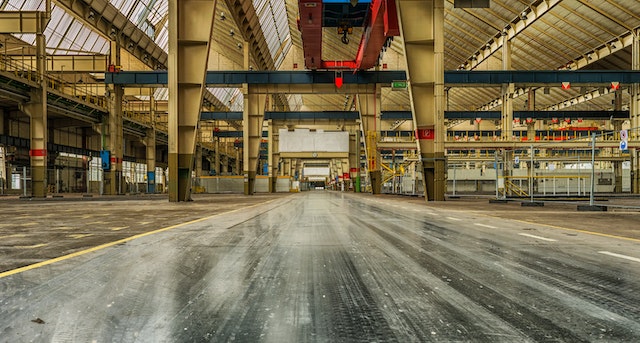What Do Capital Goods Jobs Pay? Understanding Salaries in the Industry
Capital goods jobs are an essential part of the manufacturing industry. These jobs involve the production of machinery and equipment used in the production of other goods. They include a wide range of roles, from engineers and designers to production workers and managers. For those interested in pursuing a career in this field, it is important to understand what capital goods jobs pay.
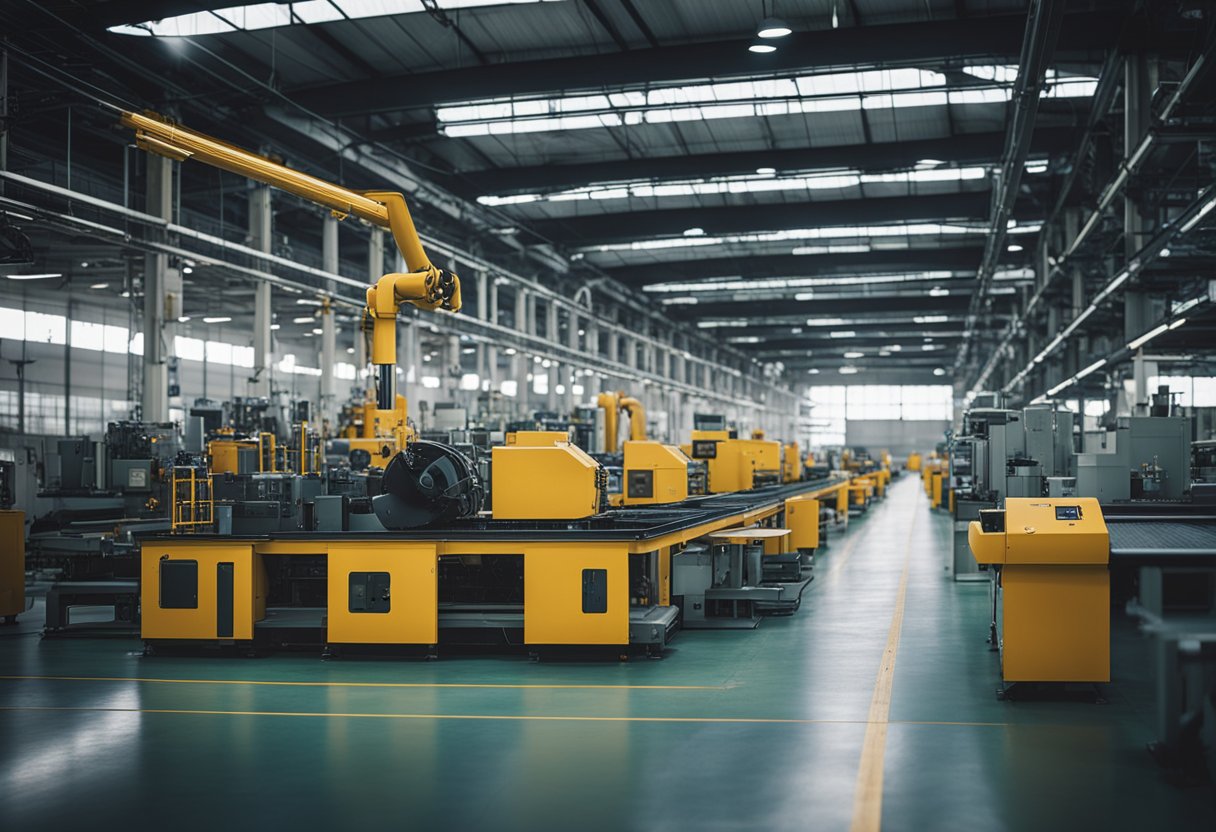
According to data from the Bureau of Labor Statistics, the median annual wage for production workers in the machinery manufacturing industry was $42,400 as of May 2022. However, wages can vary widely depending on the specific job and industry. For example, engineers and designers typically earn higher salaries than production workers, while those working in the aerospace or defense industries may earn more than those in other industries.
It is also important to consider the benefits of working in the capital goods industry. Many employers offer competitive benefits packages, including health insurance, retirement plans, and paid time off. In addition, the industry is expected to continue to grow in the coming years, providing opportunities for career advancement and job security.
Key Takeaways
- Capital goods jobs include a wide range of roles, from engineers and designers to production workers and managers.
- Wages in the capital goods industry can vary widely depending on the specific job and industry, but many employers offer competitive benefits packages.
- The capital goods industry is expected to continue to grow in the coming years, providing opportunities for career advancement and job security.
Understanding Capital Goods Jobs
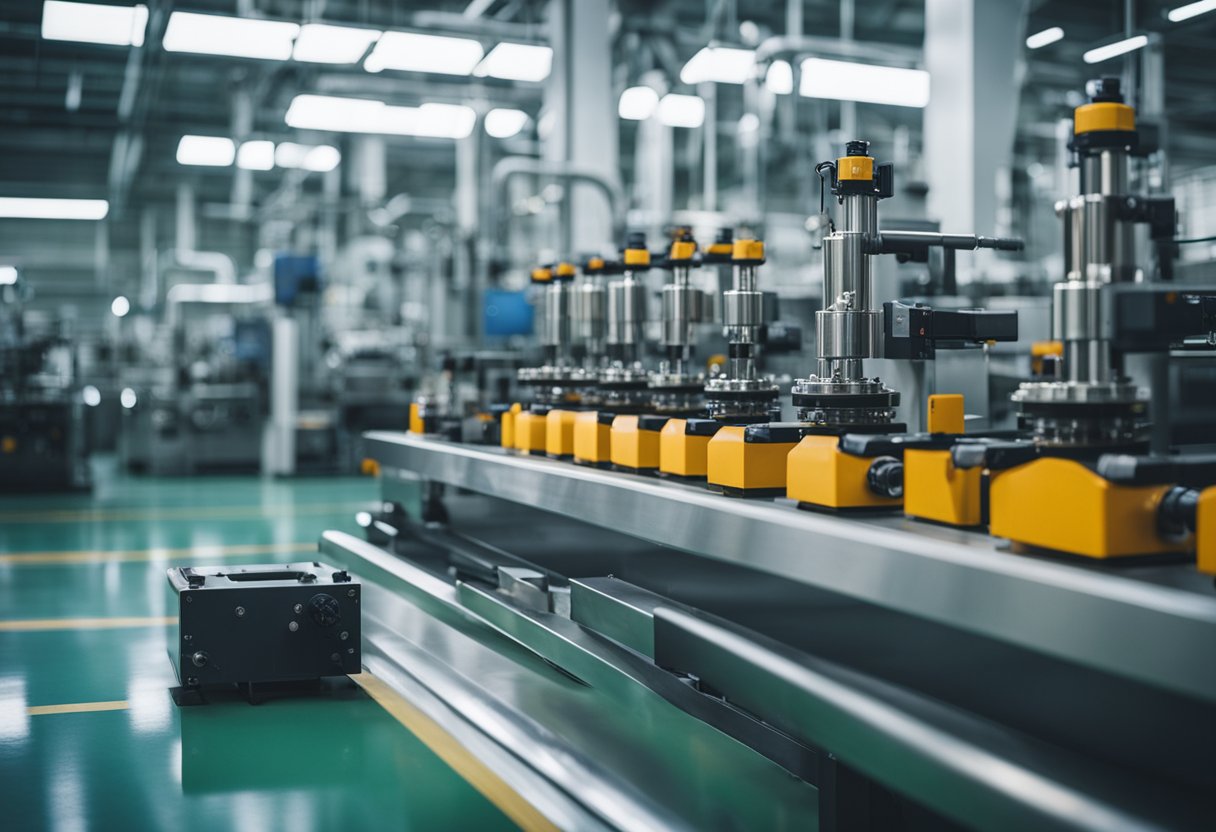
Capital goods jobs refer to employment positions that are involved in the production and maintenance of physical assets used in the manufacturing and production of goods and services. These physical assets include machinery, equipment, vehicles, buildings, tools, and other related parts.
Capital goods jobs are typically found in the manufacturing and industrial sectors of the economy. These jobs require specialized skills and knowledge in areas such as engineering, mechanics, and technology. As such, they tend to pay higher wages than other types of jobs.
In the manufacturing industry, capital goods jobs are crucial for the production of goods. These jobs involve the design, development, and maintenance of the equipment and machinery used in the production process. They also involve the creation of new products that improve efficiency and productivity.
In addition, capital goods jobs also play an essential role in the maintenance and repair of physical assets. This includes the repair and maintenance of machinery, vehicles, and other equipment used in the production process.
Overall, capital goods jobs are an essential component of the manufacturing and industrial sectors. They require specialized skills and knowledge and tend to pay higher wages than other types of jobs.
Role of Engineers in Capital Goods Jobs
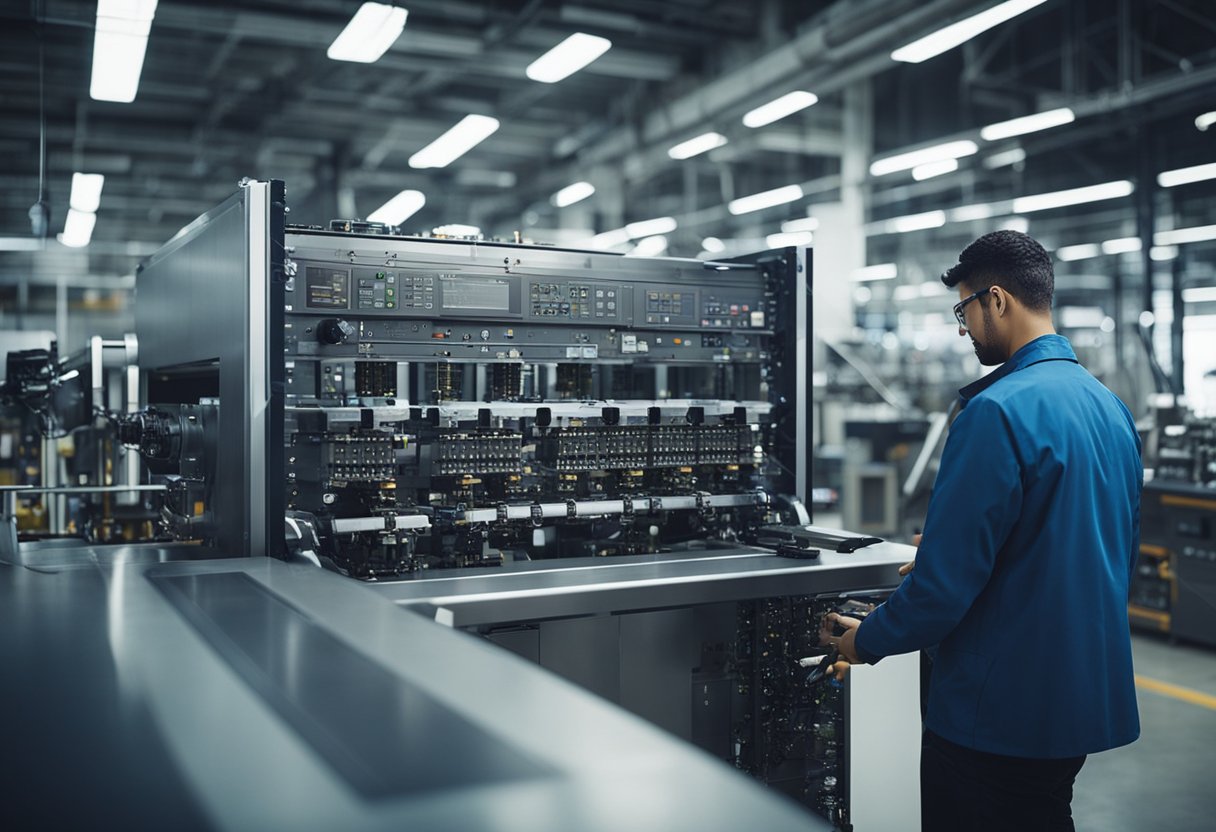
Engineers play a crucial role in capital goods jobs, as they are responsible for designing and developing the machinery and equipment used in manufacturing and other industries. Mechanical engineers, civil engineers, and robotics engineers are just a few examples of the types of engineers who work in capital goods jobs.
Engineering managers oversee the work of engineers and ensure that projects are completed on time and within budget. They also work closely with other departments, such as sales and marketing, to ensure that products are designed to meet the needs of customers.
Senior mechanical engineers often lead teams of engineers and are responsible for overseeing the design and development of complex machinery and equipment. They also work closely with other departments to ensure that products meet quality and safety standards.
In addition to designing and developing equipment, engineers in capital goods jobs also play a role in improving existing products. They may analyze data to identify areas for improvement, or work with customers to understand their needs and develop solutions that meet those needs.
Overall, engineers in capital goods jobs play a critical role in the development and production of machinery and equipment used in a variety of industries. Their expertise and knowledge are essential to ensuring that products are designed and manufactured to meet the needs of customers, while also meeting safety and quality standards.
The Manufacturing Process
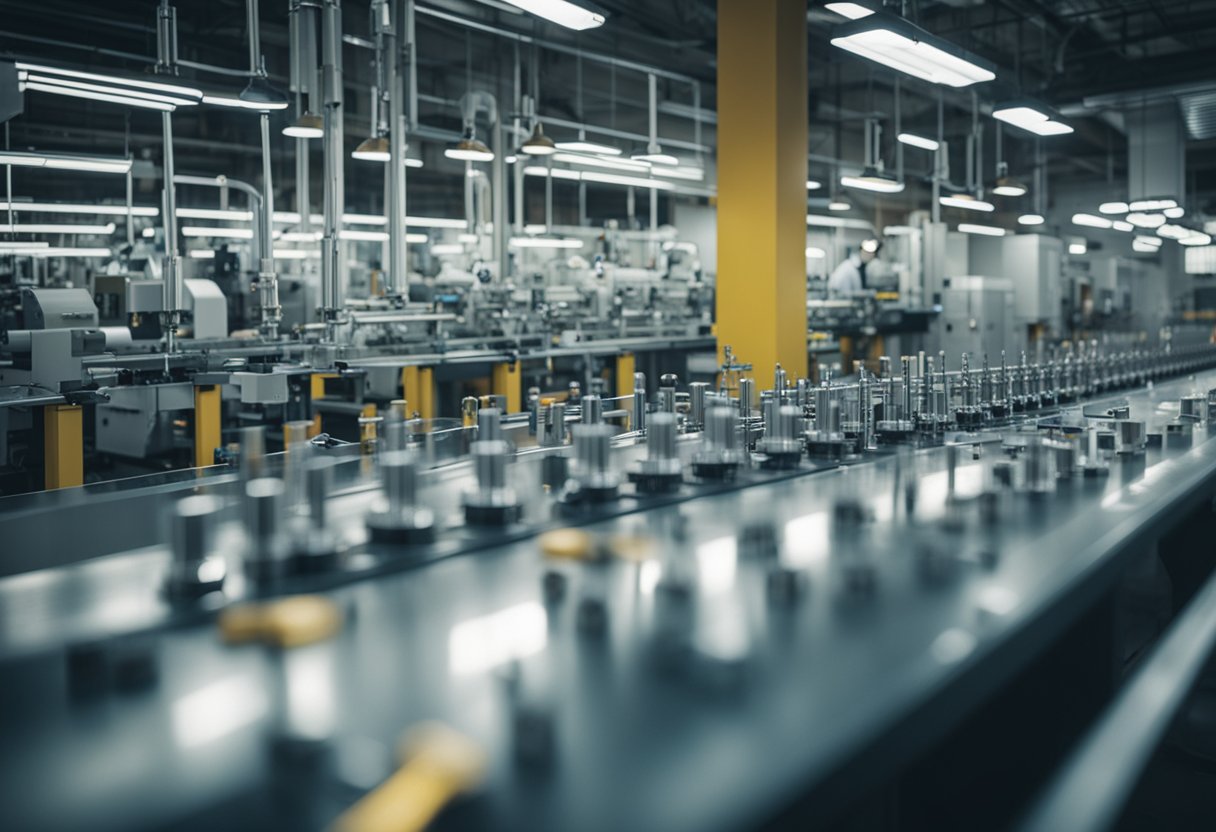
Capital goods jobs in manufacturing involve the production of goods used in other industries. The manufacturing process typically involves the use of lathes, milling machines, and other specialized equipment to create finished products.
The production process begins with the design of the finished product. Once the design is complete, the manufacturing plant will begin the process of creating the product. This may involve the use of assembly lines or other specialized equipment to assemble the finished product.
During the manufacturing process, workers may use lathes and milling machines to shape and cut parts to the desired specifications. They may also use other specialized equipment to assemble the finished product.
Overall, the manufacturing process requires a high degree of skill and knowledge. Workers in capital goods jobs must be able to operate specialized equipment and follow detailed instructions to ensure that the finished product meets the desired specifications.
In terms of pay, capital goods jobs in manufacturing can be highly lucrative. Workers in these jobs typically earn salaries that are well above the national average. However, the exact pay will depend on a variety of factors, including the type of job, the location of the manufacturing plant, and the experience and skill level of the worker.
Career Opportunities in the Capital Goods Industry
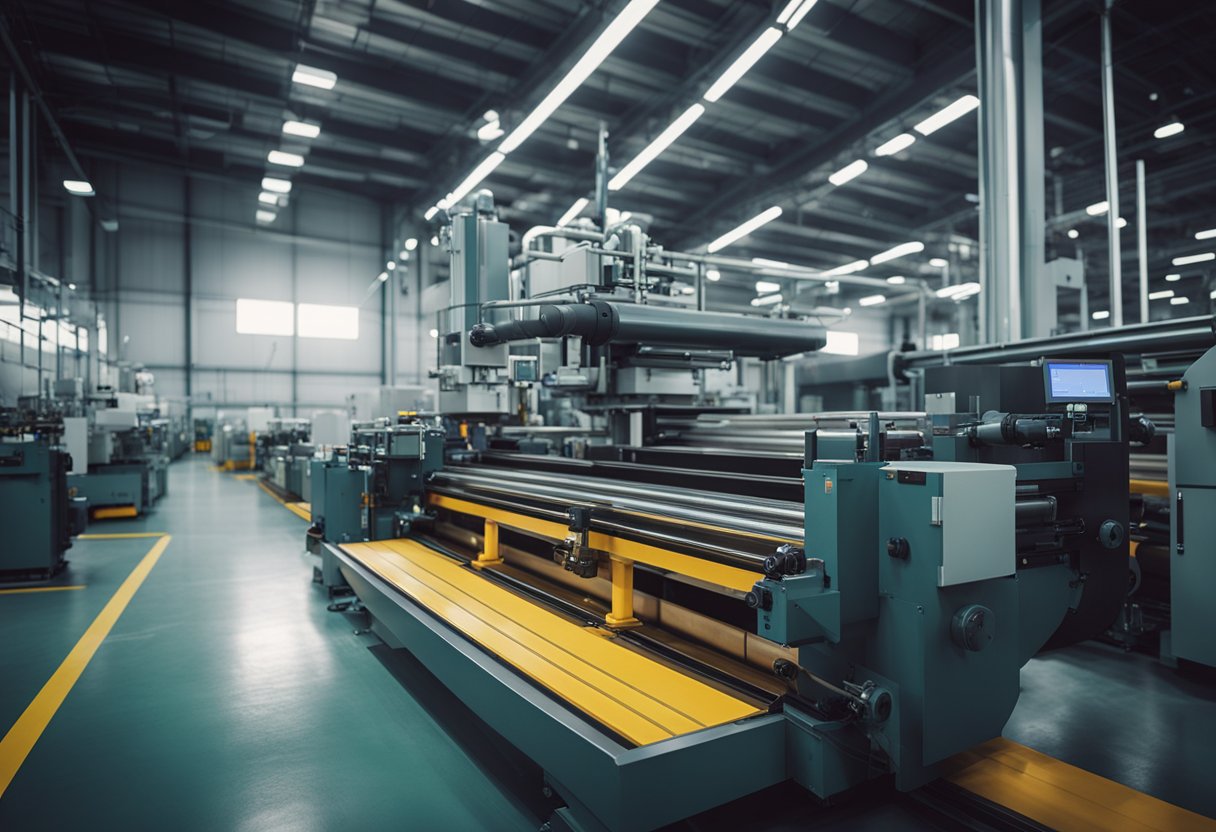
The capital goods industry is an essential sector of the economy that includes the production and distribution of machinery, equipment, and other durable goods used in manufacturing, construction, and other industrial activities. Capital goods jobs are diverse and offer various opportunities for career growth.
Individuals who are interested in capital goods careers should have a passion for engineering, technology, and innovation. They should also possess excellent problem-solving skills and have the ability to work in a team environment. Educational qualifications required for capital goods jobs vary depending on the specific role. However, most positions require at least a bachelor’s degree in engineering or a related field.
The capital goods industry offers a wide range of career opportunities, including engineering, design, production, sales, and management. Some of the most popular capital goods jobs include mechanical engineer, electrical engineer, software engineer, project manager, and sales representative. These roles offer competitive salaries, job security, and opportunities for career advancement.
In addition to traditional career paths, the capital goods industry also offers opportunities for entrepreneurs and innovators. Individuals with a passion for developing new products and technologies can start their own businesses or work for startup companies that specialize in capital goods. These roles offer the potential for significant financial rewards and the satisfaction of creating something new and innovative.
Overall, the capital goods industry is an exciting and dynamic sector that offers numerous career opportunities for individuals with the right qualifications and skills. Whether you are interested in engineering, sales, or entrepreneurship, there is a capital goods job that is right for you.
Skills Required for Capital Goods Jobs
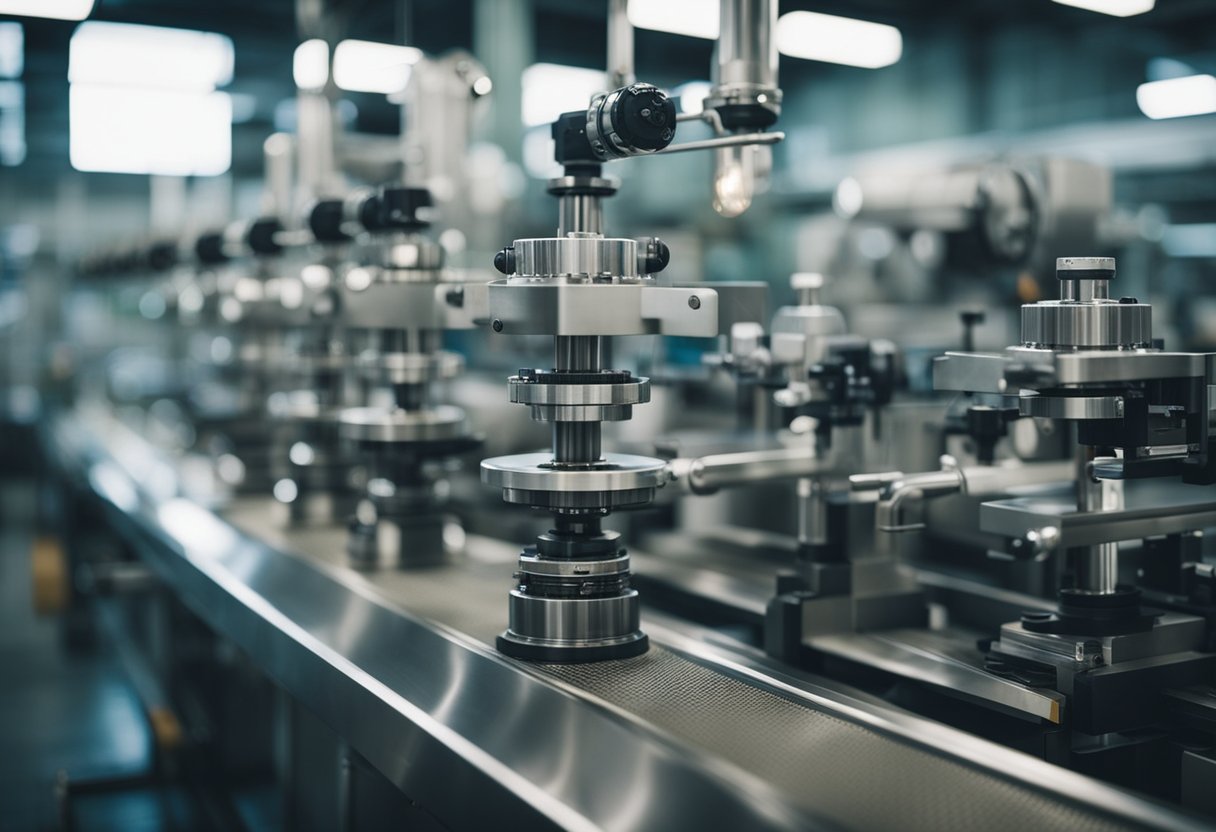
Capital goods jobs require a variety of skills in order to be successful. These jobs can range from software developers to machinists, and each position requires a different set of skills.
For software developers, a strong knowledge of programming languages such as C++, Java, and Python is essential. They must also be able to work with different software development tools and have experience with software design and testing.
Industrial designers must have a creative eye and be able to think outside the box. They must be able to create sketches and models that accurately represent the final product. They should also have knowledge of materials and manufacturing processes.
Machinists require a strong knowledge of mathematics and the ability to read and interpret blueprints. They must also be able to operate a variety of machines and tools, and have knowledge of different materials and machining techniques.
Assembly technicians must have a strong attention to detail and be able to work with small parts. They must also be able to read and interpret assembly instructions and have experience with hand and power tools.
In addition to these specific skills, capital goods jobs often require a certain level of education and experience. A bachelor’s degree in a relevant field is often preferred, but not always required. Relevant experience in a similar position is also highly valued.
Overall, capital goods jobs require a combination of technical skills, creativity, and attention to detail. Successful candidates must be able to adapt to new technologies and techniques as they arise, and be able to work collaboratively with others in order to produce high-quality products.
Compensation and Benefits

Capital goods jobs are often lucrative, providing employees with competitive salaries and benefits packages. According to the Bureau of Labor Statistics, the median annual wage for workers in the machinery manufacturing industry, which includes many capital goods jobs, was $54,420 as of May 2022.
However, salaries for capital goods jobs can vary widely depending on the specific job and industry. For example, the BLS reports that the median annual wage for industrial machinery mechanics was $54,070, while the median annual wage for aerospace engineers was $118,610.
In addition to competitive salaries, many capital goods jobs offer generous benefits packages. These may include health insurance, retirement plans, and paid time off. Some employers may also offer bonuses or profit-sharing programs to reward employees for their contributions to the company’s success.
Overall, capital goods jobs can be a great option for those seeking high-paying and rewarding careers. With a variety of positions available across industries, individuals with the right skills and experience can find opportunities to advance their careers and achieve financial stability.
Key Roles in the Capital Goods Industry
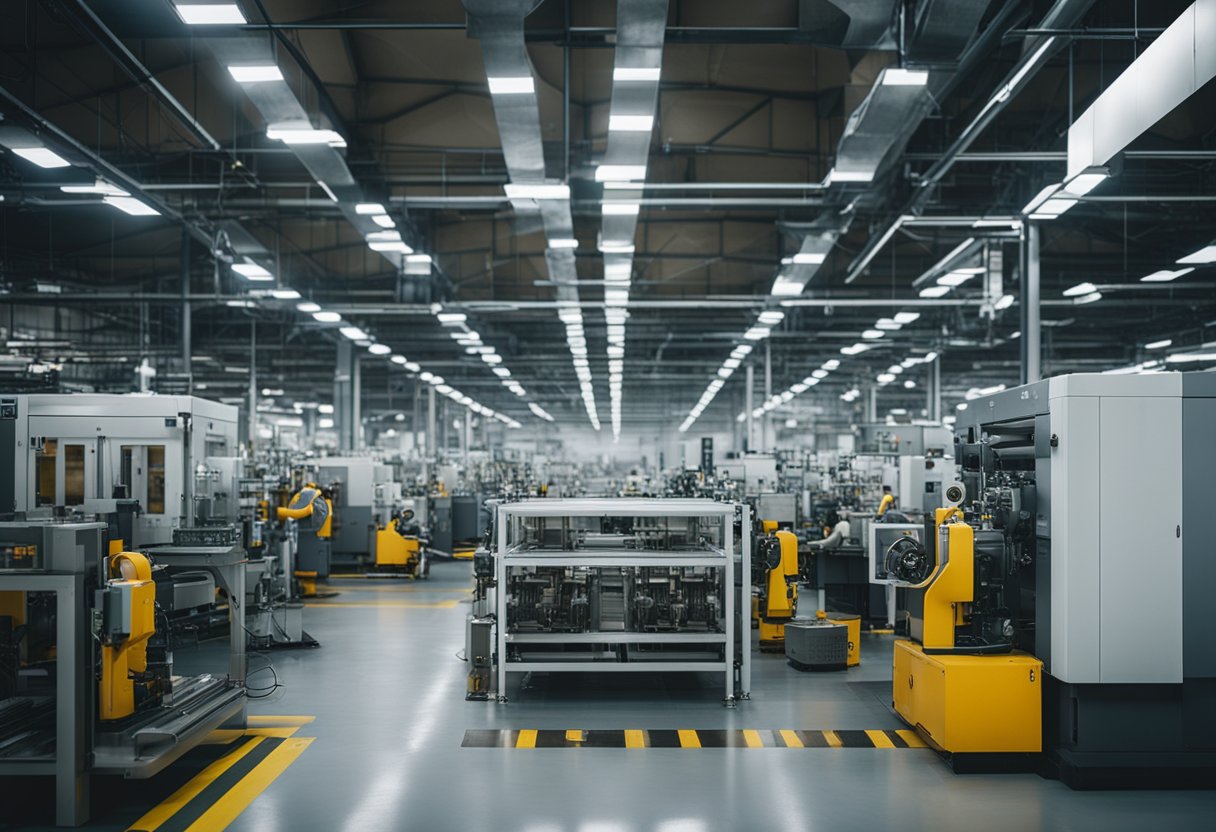
The capital goods industry is a vast field that employs a variety of professionals with different skill sets. The following are some of the key roles in the industry:
Marketing Manager
Marketing managers in the capital goods industry are responsible for developing and implementing marketing strategies to promote and sell capital goods. They work closely with sales teams to identify potential customers and develop marketing campaigns to reach them.
Business Development Manager
Business development managers in the capital goods industry are responsible for identifying new business opportunities and developing relationships with clients. They work closely with marketing and sales teams to identify potential clients and develop strategies to win new business.
Sales Engineer
Sales engineers in the capital goods industry are responsible for selling capital goods to clients. They work closely with marketing and business development teams to identify potential clients and develop sales strategies to win new business.
Manufacturing Engineer
Manufacturing engineers in the capital goods industry are responsible for designing and improving manufacturing processes to produce capital goods efficiently and cost-effectively. They work closely with production managers and technicians to ensure that production processes run smoothly.
Industrial Engineer
Industrial engineers in the capital goods industry are responsible for optimizing manufacturing processes to improve efficiency and reduce costs. They work closely with manufacturing engineers and production managers to identify areas for improvement and implement solutions.
Electrical Engineer
Electrical engineers in the capital goods industry are responsible for designing and developing electrical systems for capital goods. They work closely with manufacturing engineers and production managers to ensure that electrical systems are integrated into capital goods efficiently and effectively.
Project Manager
Project managers in the capital goods industry are responsible for managing capital goods projects from start to finish. They work closely with manufacturing engineers, production managers, and sales teams to ensure that projects are completed on time and within budget.
Production Managers
Production managers in the capital goods industry are responsible for overseeing the production of capital goods. They work closely with manufacturing engineers and technicians to ensure that production processes run smoothly and that capital goods are produced to high quality standards.
Mechanics
Mechanics in the capital goods industry are responsible for maintaining and repairing capital goods. They work closely with production managers and technicians to ensure that capital goods are kept in good working order.
Electronics
Electronics professionals in the capital goods industry are responsible for designing and developing electronic systems for capital goods. They work closely with manufacturing engineers and production managers to ensure that electronic systems are integrated into capital goods efficiently and effectively.
Quality Control Manager
Quality control managers in the capital goods industry are responsible for ensuring that capital goods meet quality standards. They work closely with production managers and technicians to ensure that capital goods are produced to high quality standards.
Software Engineer
Software engineers in the capital goods industry are responsible for developing software for capital goods. They work closely with manufacturing engineers and production managers to ensure that software is integrated into capital goods efficiently and effectively.
Machinist
Machinists in the capital goods industry are responsible for operating and maintaining machines used in the production of capital goods. They work closely with production managers and technicians to ensure that machines are kept in good working order.
Assembly Technician
Assembly technicians in the capital goods industry are responsible for assembling capital goods. They work closely with production managers and technicians to ensure that capital goods are assembled to high quality standards.
Sales Manager
Sales managers in the capital goods industry are responsible for managing sales teams and developing sales strategies to win new business. They work closely with marketing and business development teams to identify potential clients and develop strategies to win new business.
Technicians
Technicians in the capital goods industry are responsible for maintaining and repairing capital goods. They work closely with production managers and mechanics to ensure that capital goods are kept in good working order.
Production Workers
Production workers in the capital goods industry are responsible for assembling capital goods. They work closely with production managers and assembly technicians to ensure that capital goods are assembled to high quality standards.
Warehouse Worker
Warehouse workers in the capital goods industry are responsible for managing inventory and shipping and receiving capital goods. They work closely with production managers and sales teams to ensure that capital goods are shipped to clients on time.
Assembler
Assemblers in the capital goods industry are responsible for assembling capital goods. They work closely with production managers and assembly technicians to ensure that capital goods are assembled to high quality standards.
Research and Development Manager
Research and development managers in the capital goods industry are responsible for developing new capital goods and improving existing ones. They work closely with manufacturing engineers and production managers to ensure that new capital goods are developed efficiently and effectively.
Specialist
Specialists in the capital goods industry are responsible for providing specialized knowledge and expertise in a specific area, such as electronics or software development. They work closely with manufacturing engineers and production managers to ensure that their specialized knowledge is integrated into capital goods efficiently and effectively.
The Impact of Technology on Capital Goods Jobs
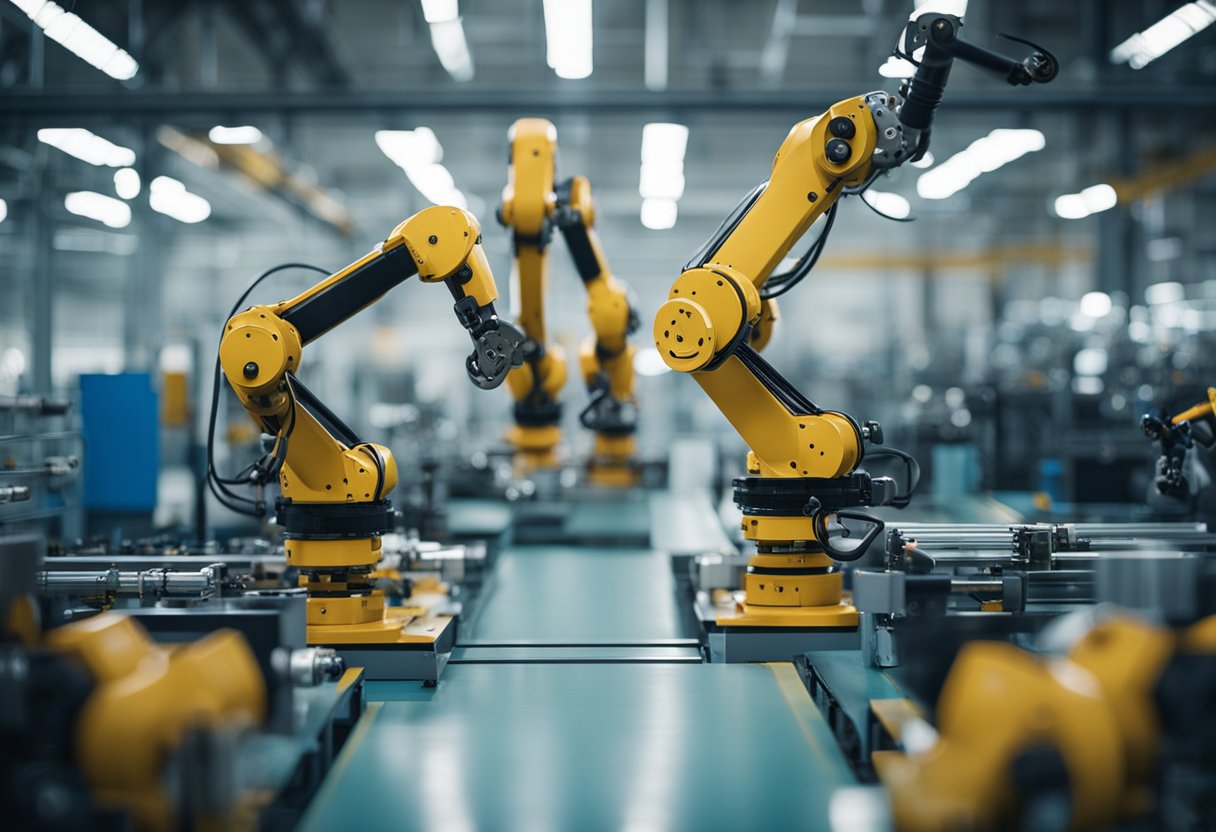
Technology has had a significant impact on the capital goods industry. With the rise of automation and technological advancements, many capital goods jobs have evolved to require new skills and knowledge. This has led to a shift in the types of jobs available and the salaries that come with them.
One of the most significant changes in the industry has been the increased use of automation. As companies look for ways to increase efficiency and reduce costs, they have turned to automation to streamline their operations. This has led to a decrease in the number of manual labor jobs and an increase in jobs that require knowledge of software and robotics.
As a result, software developers and robotics engineers have become highly sought after in the capital goods industry. These professionals are responsible for designing and implementing the software and robotics systems that are used to automate production processes. They typically command high salaries due to the specialized skills and knowledge required for these roles.
Despite the shift towards automation, there are still many jobs in the capital goods industry that require manual labor. However, even these jobs have been impacted by technology. Workers are now required to have a basic understanding of technology and be able to operate and maintain automated systems.
In conclusion, technology has had a significant impact on the capital goods industry. While it has led to a decrease in certain types of jobs, it has also created new opportunities for those with specialized skills in software development and robotics engineering. As technology continues to evolve, it is likely that the industry will continue to change, and the types of jobs available will continue to shift.
Capital Goods in Various Industries

Capital goods play a crucial role in the functioning of various industries, including automobiles, aerospace and defense companies, chemical industry, renewable energy, and more. These industries require a wide range of capital goods, such as machinery, equipment, and tools, to manufacture their products or provide services.
In the automobile industry, capital goods are used to produce vehicles, including cars, trucks, buses, and motorcycles. These capital goods include assembly lines, robots, and specialized tools, among others. The salaries for capital goods jobs in the automobile industry vary depending on the position and level of experience. For instance, a mechanical engineer can earn an average salary of $84,190 per year, while a manufacturing engineer can earn an average salary of $71,400 per year.
Aerospace and defense companies also require capital goods to manufacture aircraft, missiles, and other defense-related products. These capital goods include precision tools, testing equipment, and specialized machinery. The salaries for capital goods jobs in the aerospace and defense industry vary depending on the position and level of experience. For instance, a mechanical engineer can earn an average salary of $93,360 per year, while a manufacturing engineer can earn an average salary of $77,000 per year.
In the chemical industry, capital goods are used to produce chemicals, plastics, and other related products. These capital goods include reactors, distillation columns, and specialized pumps. The salaries for capital goods jobs in the chemical industry vary depending on the position and level of experience. For instance, a chemical engineer can earn an average salary of $108,770 per year, while a process engineer can earn an average salary of $86,610 per year.
Renewable energy industries, such as solar and wind power, also require capital goods to produce energy. These capital goods include solar panels, wind turbines, and inverters. The salaries for capital goods jobs in the renewable energy industry vary depending on the position and level of experience. For instance, a mechanical engineer can earn an average salary of $92,800 per year, while an electrical engineer can earn an average salary of $99,070 per year.
Overall, capital goods jobs in various industries offer competitive salaries and opportunities for growth and development.
The Future of Capital Goods Jobs
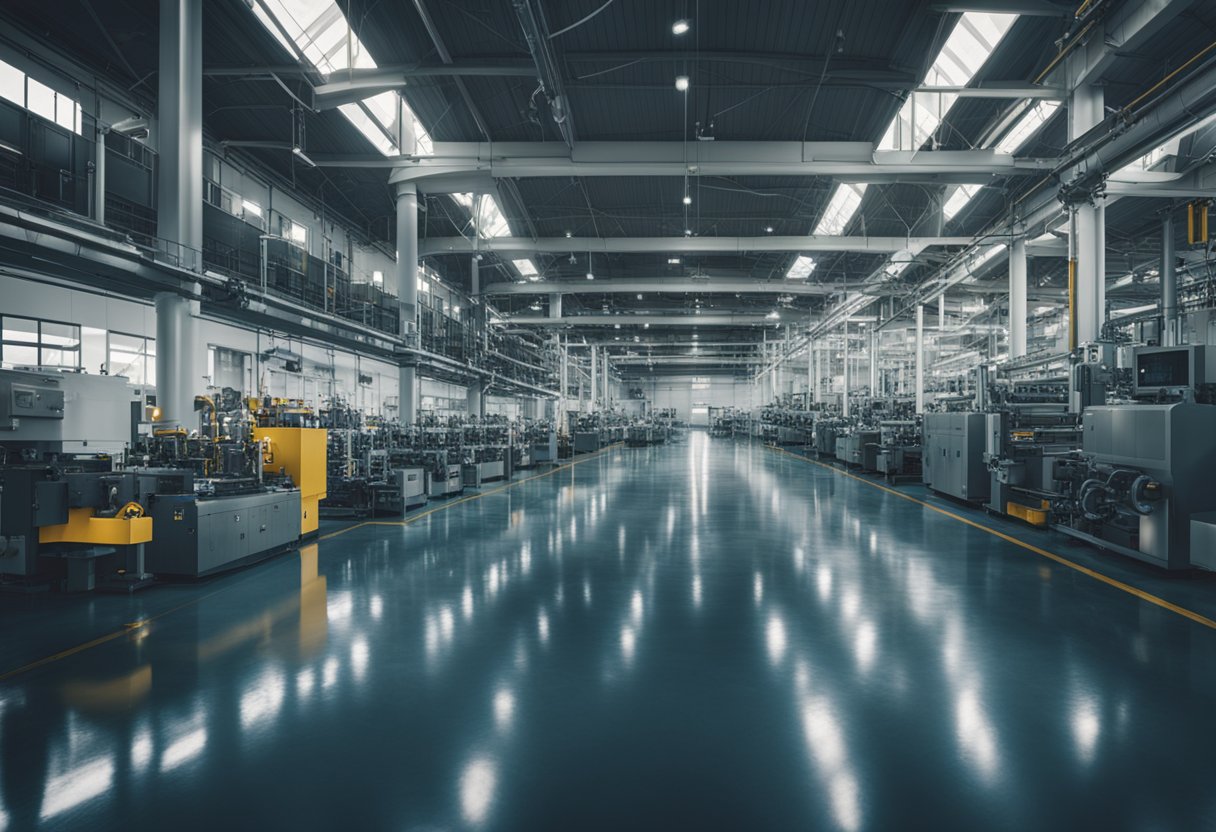
As technology continues to advance, the future of capital goods jobs is uncertain. Automation is becoming increasingly prevalent, and many industries are transitioning to renewable energy sources. This shift will have a significant impact on the job market, particularly in the capital goods sector.
On the one hand, technological advancements will create new job opportunities in research and development. As companies strive to stay ahead of the competition, they will need skilled professionals to design and develop new products and technologies. These jobs will require a high level of education and expertise, but they will offer competitive salaries and opportunities for career growth.
On the other hand, automation will likely lead to a decrease in manual labor jobs in the capital goods sector. As machines become more advanced and efficient, companies will rely less on human workers to perform tasks such as assembly and production. This could lead to job losses and a shift in the types of jobs available in the industry.
The transition to renewable energy sources will also impact the job market in the capital goods sector. As more companies move away from fossil fuels, there will be a growing demand for professionals who can design and manufacture renewable energy technologies, such as wind turbines and solar panels. This shift may create new job opportunities, but it may also lead to job losses in industries that rely heavily on fossil fuels.
Overall, the future of capital goods jobs is uncertain. While technological advancements and the shift towards renewable energy will create new job opportunities, automation may lead to job losses in certain areas. It is important for individuals in the industry to stay up-to-date on the latest developments and adapt to the changing job market.
Frequently Asked Questions

What is the average salary for capital goods jobs?
The average salary for capital goods jobs varies depending on the level of experience, job title, and location. According to the Bureau of Labor Statistics, the median annual wage for production occupations in the machinery manufacturing industry was $44,420 as of May 2021.
What factors affect the pay rate for capital goods jobs?
Several factors can affect the pay rate for capital goods jobs, including experience, education, job title, and location. In addition, the demand for certain skills and the overall health of the economy can also impact pay rates.
What skills are required for high-paying capital goods jobs?
High-paying capital goods jobs typically require a combination of technical skills, problem-solving abilities, and communication skills. Some of the most in-demand skills for these jobs include proficiency in computer-aided design (CAD) software, knowledge of lean manufacturing principles, and experience with automation technologies.
What are some common job titles in the capital goods industry?
Common job titles in the capital goods industry include mechanical engineer, electrical engineer, industrial designer, machinist, and production manager. Other roles may include quality control inspector, assembly technician, and maintenance technician.
How does location impact pay for capital goods jobs?
Location can have a significant impact on pay rates for capital goods jobs. For example, jobs in high-cost-of-living areas may offer higher salaries to compensate for the increased cost of living. In addition, some regions may have a higher demand for certain skills, which can also impact pay rates.
What education or certifications are necessary for capital goods jobs?
The education and certification requirements for capital goods jobs can vary depending on the specific role and employer. However, many high-paying jobs in this industry require at least a bachelor’s degree in engineering or a related field. In addition, certifications in areas such as project management or lean manufacturing can also be beneficial for career advancement.

